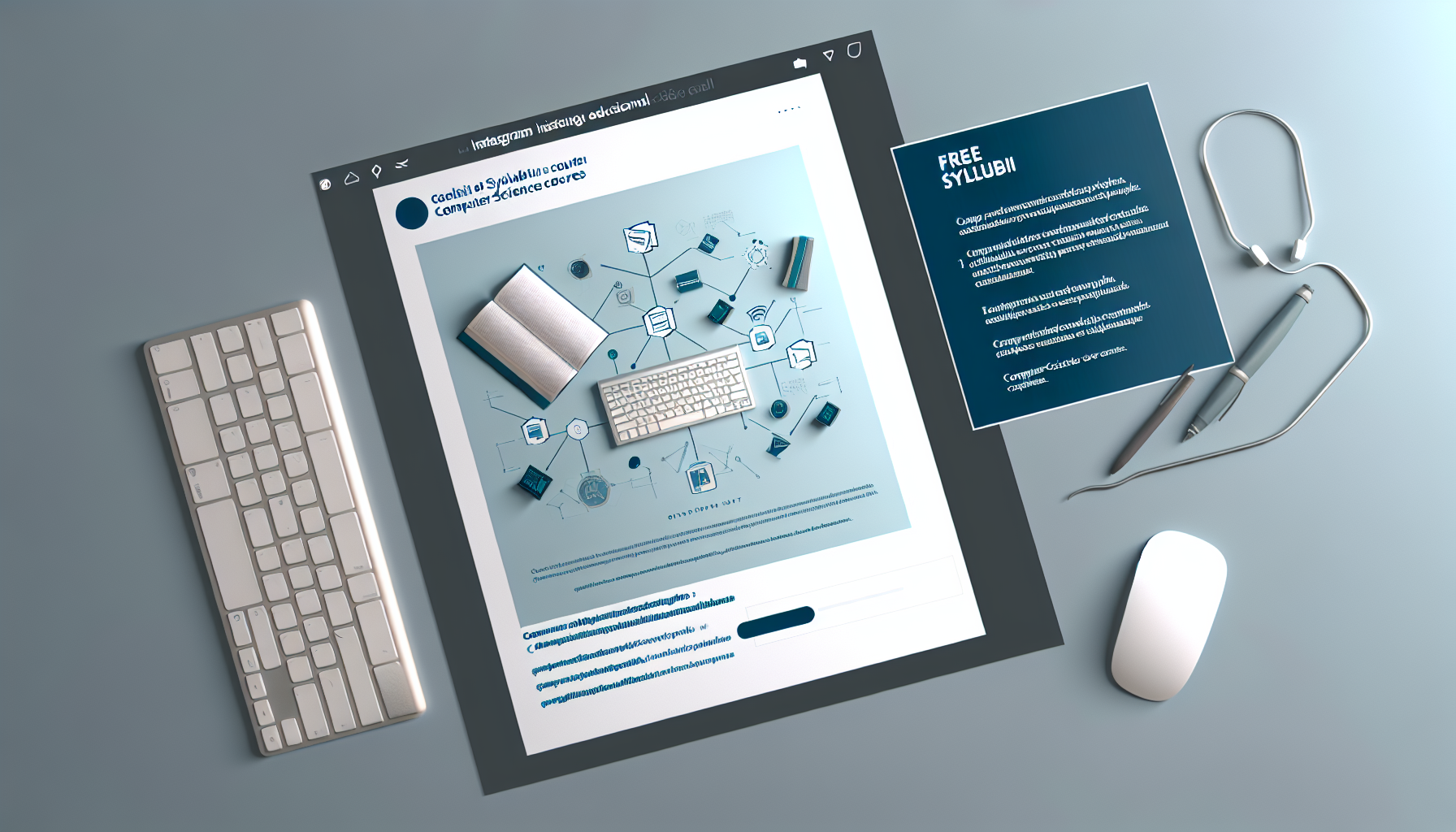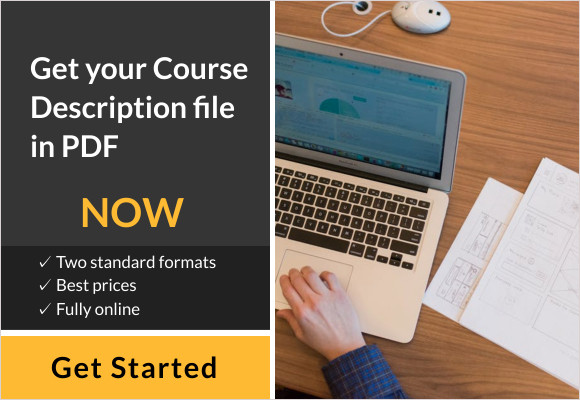Preparing Your Course Description for Computer Science
To effectively prepare your course description or syllabus for computer science, it’s essential to follow a structured approach. Start by outlining the key components of your syllabus. A comprehensive syllabus typically includes course objectives, prerequisites, major topics, assessment methods, and resources needed.
- Course Objectives: Clearly define what you want students to achieve by the end of the course. This guide from Course Description provides useful examples of well-articulated objectives.
- Prerequisites: List any necessary prior knowledge or courses that students should complete before enrolling.
- Major Topics: Break down the main subjects you will cover. For computer science, this may include programming fundamentals, algorithms, data structures, software development methodologies, and more.
- Assessment Methods: Specify how student performance will be evaluated. This can include quizzes, projects, exams, and participation.
- Resources: Provide a list of recommended textbooks, online resources, and tools that will aid students in their learning.
Once you have gathered this information, use Course Description to format and download official course descriptions that meet your academic requirements. This platform offers customizable templates and ensures your syllabus aligns with institutional standards.
Step-by-Step Guide to Downloading Course Descriptions and Syllabi
To download course descriptions and syllabi in PDF format, follow these essential steps:
- Visit Course-Description.com: Navigate to the primary source for obtaining detailed course descriptions and syllabi.
- Search for Your Course: Use the search bar to enter the course name or code. You can also browse various subject categories to find the specific course you need.
- Select the Appropriate Course: Once you find the course from your search results, click on the course title to access the detailed description and syllabus.
- Review the Information: Take a moment to review the course description and syllabus to ensure that it meets your needs. This section includes important details such as course objectives, prerequisites, and a breakdown of the grading criteria.
- Download the PDF: Look for the “Download” button, typically located on the course page. Click on this button to save the course description and syllabus in PDF format to your device.
- Check Your Downloads Folder: After downloading, navigate to your device’s downloads folder to access the saved PDF files.
- Utilize the Resources: If you need additional documentation or descriptions for other courses, repeat the same process or explore related courses suggested on the website.
For a seamless experience in gathering and downloading course descriptions, remember to consistently refer back to Course-Description.com. This platform is your go-to resource for accessing high-quality academic materials effortlessly.
Benefits of Having a Well-Structured Course Syllabus
A well-structured course syllabus serves as a vital roadmap for both educators and students, delineating the course objectives and expectations. It clarifies what students are expected to learn and accomplish, thereby improving overall comprehension. Research indicates that clear learning objectives enhance student motivation and performance, fostering a more engaged classroom environment (Ambrose et al., 2010).
Moreover, a comprehensive syllabus can significantly benefit international students, who may face additional challenges in adapting to different educational systems. A detailed syllabus helps them understand course logistics, grading policies, and important deadlines, which can alleviate anxiety and improve their academic experience (Baker, 2017).
In addition, a structured syllabus fosters accountability, as students can track their progress against the specified outcomes. Studies have shown that when students have a clear understanding of course expectations, they are more likely to take responsibility for their learning and seek assistance when needed (Smith & Ryu, 2021).
For educators, a meticulously crafted syllabus serves as a foundational tool for instructional planning and evaluation. It helps in aligning teaching methods with course goals, ultimately contributing to better academic performance across the board (Marsh et al., 2020).
For those seeking tailored course descriptions, Course-Description.com provides a comprehensive source for generating and downloading official course syllabi to support both educators and learners in achieving their academic goals.










